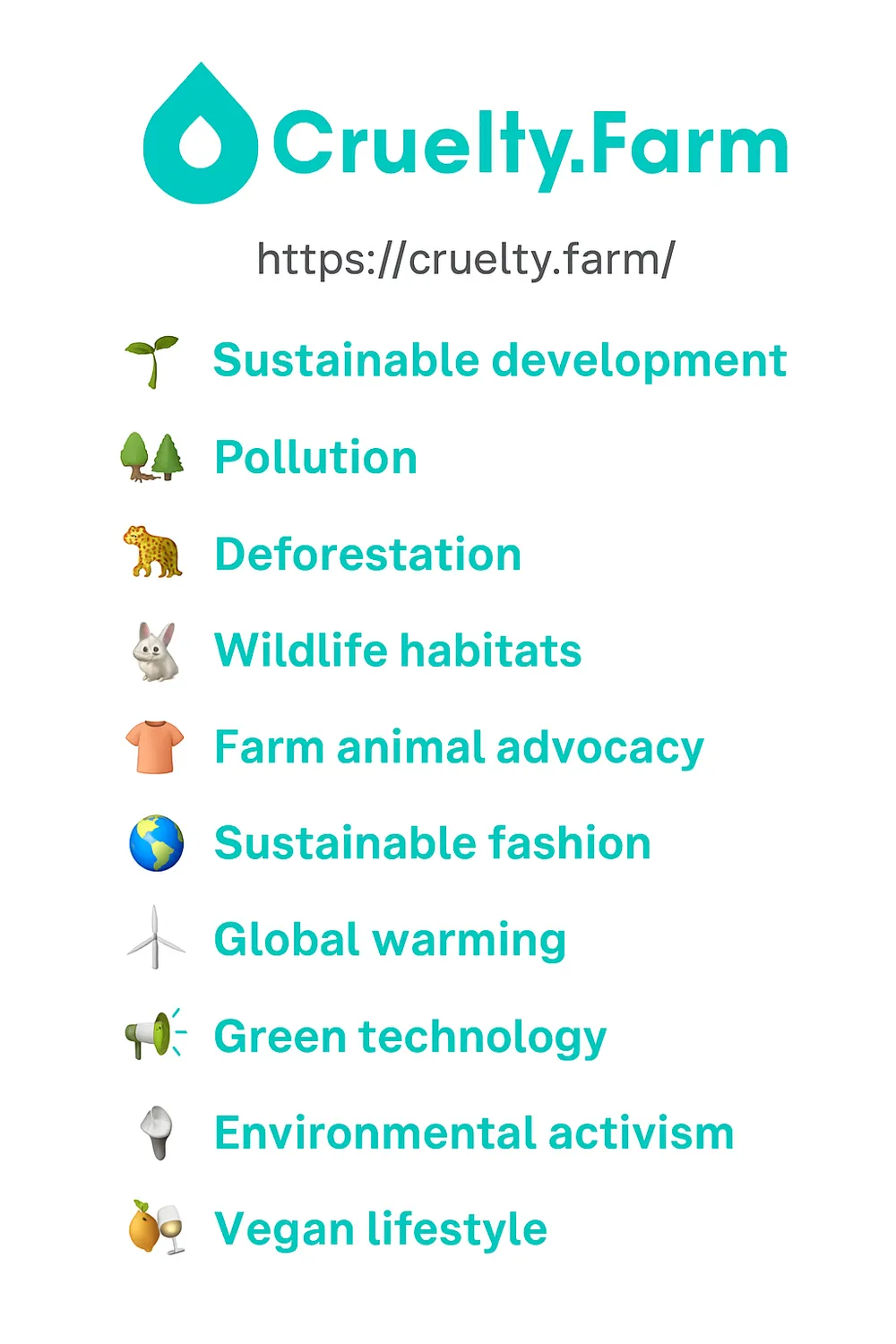
Farm animal advocacy is a growing movement dedicated to improving the welfare of animals raised for food. Every year, billions of animals—cows, pigs, chickens, turkeys, and others—are bred, confined, and slaughtered in factory farms under conditions that raise serious ethical, environmental, and health concerns. Advocates for farm animals seek to challenge this system and create a world where compassion and humane treatment extend to all living beings, not just pets or wildlife.
The Reality of Factory Farming
Modern industrial agriculture, also known as factory farming, focuses on producing large quantities of meat, dairy, and eggs at the lowest possible cost. To achieve this, animals are often kept in overcrowded and inhumane conditions. For instance:
- Chickens are crammed into battery cages with little room to spread their wings.
- Pigs are confined to gestation crates so small they cannot turn around.
- Cows are frequently kept indoors, separated from their calves, and pumped with antibiotics and hormones.
These practices not only cause immense physical and psychological suffering for the animals but also raise serious concerns about food safety, public health, and environmental sustainability.
Why Farm Animal Advocacy Matters
Farm animal advocacy is rooted in the belief that all animals, regardless of species, deserve humane treatment and protection from suffering. These animals are sentient—they feel pain, fear, joy, and affection—just like the cats and dogs we cherish as pets.
Advocating for farm animals matters for several reasons:
- Ethical Responsibility
If we believe in kindness, justice, and respect for life, then the treatment of farm animals must reflect those values. The suffering of animals raised for food is often hidden from public view, and advocacy helps bring this cruelty to light. - Environmental Impact
Factory farming is one of the leading contributors to greenhouse gas emissions, deforestation, water pollution, and loss of biodiversity. Reducing our reliance on animal agriculture is a powerful step toward combating climate change and protecting natural ecosystems. - Public Health
The overuse of antibiotics in animal farming contributes to antibiotic resistance in humans. Additionally, unsanitary conditions in factory farms can lead to the outbreak of zoonotic diseases—illnesses that can transfer from animals to humans. - Worker Welfare
Employees in industrial animal agriculture often work in dangerous and inhumane conditions, facing physical risks and psychological trauma. Advocacy can push for better standards and labor rights in this sector.
Ways to Support Farm Animal Advocacy
There are many ways individuals and communities can support the cause of farm animal welfare:
- Adopt a Plant-Based or Flexitarian Diet
Reducing or eliminating animal products from your diet is one of the most impactful ways to oppose animal cruelty. Even small changes—like going meat-free one day a week—can make a difference. - Support Ethical Brands and Farms
Choose products that are certified humane, organic, or pasture-raised. These labels typically indicate better living conditions for animals compared to conventional factory farms. - Educate and Raise Awareness
Sharing documentaries, articles, and facts about the realities of animal agriculture can inspire others to reconsider their food choices. Awareness is the first step toward change. - Advocate for Policy Reform
Support legislation that improves animal welfare standards, bans cruel practices, and promotes transparency in the food industry. Contacting lawmakers and voting with animal welfare in mind can create systemic change. - Donate or Volunteer
Numerous organizations work tirelessly to protect farm animals through rescue, education, and legal advocacy. Donating or volunteering time and skills can help further their mission.
Conclusion
Farm animal advocacy is about expanding our circle of compassion to include the billions of animals often forgotten behind the walls of factory farms. It challenges us to question our daily choices, demand better from our food systems, and stand up for those who cannot speak for themselves. A kinder, more ethical world is possible—and it begins with awareness, action, and empathy.